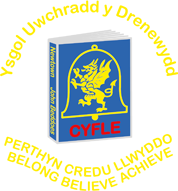Science NC
Physics
Introduction:
Studying Physics provides the foundations for understanding the material world. Scientific understanding is changing our lives and is vital to the world’s future prosperity, and all learners should be taught essential aspects of the knowledge, methods, processes and uses of science.
It covers everyday things like the functions of microwave ovens and mobile phones, to the birth and death of stars, our ever-expanding understanding of the universe and what happens inside the smallest atoms. Physics trains you to think logically and to solve complex problems.
Skills developed:
As well as studying information about how things all around you work, we also help you develop useful skills including:
- Practical skills – these are an intrinsic part of science. It is imperative that practical skills are developed throughout this course and an investigatory approach is promoted.
- Analytical skills - Students develop their numeracy skills through experimental data analysis and consideration of evidence to justify conclusions.
- Critical thinking and problem solving – Students develop skills to enable them to think critically to evaluate evidence and apply their knowledge to new contexts to solve problems.
- Communication skills – Students develop in groups an interpersonal skill set, with a focus on oracy, to help each other understand new information and to complete practical activities.
These courses encourage learners to develop confidence in, and a positive attitude towards, science and to recognise its importance in their own lives and to society.
Topics covered:
The topics we cover in Physics are:
|
GCSE (Year 10 and Year 11) |
A Level (Year 12 and Year 13) |
1.1 Electric circuits 1.2 Generating electricity 1.3 Making use of energy 1.4 Domestic electricity 1.5 Features of waves 1.6 The total internal reflection of waves 1.7 Seismic waves 1.8 Kinetic theory 1.9 Electromagnetism
In Year 11 2.1 Distance, speed and acceleration 2.2 Newton's laws 2.3 Work and energy 2.4 Further motion concepts 2.5 Stars and planets 2.6 The Universe 2.7 Types of radiation 2.8 Half-life 2.9 Nuclear decay and nuclear energy |
1. Basic physics skills 2. Motion in straight lines and projectiles 3. Forces and momentum. 4. Work, energy and power. 5. Solids under stress (materials). 6. Using radiation to investigate stars 7. Particles and nuclear structure. 8. Electricity and circuits 9. Light and waves 10. Photons and LASERs.
1. Circular motion 2. Kinetic theory 3. Thermal physics 4. Nuclear energy 5. Capacitance 6. Force fields 7.Universe and orbits 8. Magnetic fields 9. Electromagnetic induction 10. Energy and the environment.
|
Chemistry
Introduction:
Studying Physics provides the foundations for understanding the material world. Scientific understanding is changing our lives and is vital to the world’s future prosperity, and all learners should be taught essential aspects of the knowledge, methods, processes and uses of science.
It covers everyday things like the functions of microwave ovens and mobile phones, to the birth and death of stars, our ever-expanding understanding of the universe and what happens inside the smallest atoms. Physics trains you to think logically and to solve complex problems.
Skills developed:
As well as studying information about how things all around you work, we also help you develop useful skills including:
- Practical skills – these are an intrinsic part of science. It is imperative that practical skills are developed throughout this course and an investigatory approach is promoted.
- Analytical skills - Students develop their numeracy skills through experimental data analysis and consideration of evidence to justify conclusions.
- Critical thinking and problem solving – Students develop skills to enable them to think critically to evaluate evidence and apply their knowledge to new contexts to solve problems.
- Communication skills – Students develop in groups an interpersonal skill set, with a focus on oracy, to help each other understand new information and to complete practical activities.
These courses encourage learners to develop confidence in, and a positive attitude towards, science and to recognise its importance in their own lives and to society.
Topics covered:
The topics we cover in Physics are:
|
GCSE (Year 10 and Year 11) |
A Level (Year 12 and Year 13) |
1.1 Electric circuits 1.2 Generating electricity 1.3 Making use of energy 1.4 Domestic electricity 1.5 Features of waves 1.6 The total internal reflection of waves 1.7 Seismic waves 1.8 Kinetic theory 1.9 Electromagnetism
In Year 11 2.1 Distance, speed and acceleration 2.2 Newton's laws 2.3 Work and energy 2.4 Further motion concepts 2.5 Stars and planets 2.6 The Universe 2.7 Types of radiation 2.8 Half-life 2.9 Nuclear decay and nuclear energy |
1. Basic physics skills 2. Motion in straight lines and projectiles 3. Forces and momentum. 4. Work, energy and power. 5. Solids under stress (materials). 6. Using radiation to investigate stars 7. Particles and nuclear structure. 8. Electricity and circuits 9. Light and waves 10. Photons and LASERs.
1. Circular motion 2. Kinetic theory 3. Thermal physics 4. Nuclear energy 5. Capacitance 6. Force fields 7.Universe and orbits 8. Magnetic fields 9. Electromagnetic induction 10. Energy and the environment.
|

